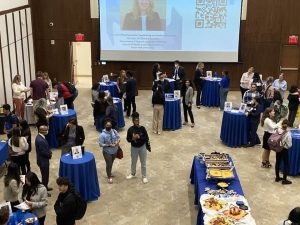Western Iowa Tech Community College has settled its second human trafficking lawsuit, marking a significant milestone in the fight against this heinous crime. The lawsuit was filed by a former student who alleged that the college had failed to protect her from being trafficked by another student while she was enrolled at the school.
The settlement comes after the college’s first human trafficking lawsuit was settled last year, in which a different former student made similar allegations. In both cases, the college was accused of failing to provide adequate security measures to protect students from being exploited.
In response to the lawsuits, Western Iowa Tech has implemented new safety protocols and training programs to better educate faculty, staff, and students about recognizing and preventing human trafficking. The college has also partnered with local organizations and law enforcement agencies to further address this issue and ensure the safety of its students.
“We take these allegations very seriously and are committed to creating a safe and secure environment for all members of our campus community,” said Dr. Terry Murrell, the college president. “We have made significant changes to our policies and procedures to prevent human trafficking and will continue to work diligently to protect our students.”
Human trafficking is a pervasive issue that affects millions of people worldwide, including here in the United States. It is a form of modern-day slavery in which individuals are forced or coerced into labor or commercial sex acts against their will. Victims of human trafficking often face physical and emotional trauma, as well as severe economic and social consequences.
By settling these lawsuits and taking proactive measures to prevent human trafficking, Western Iowa Tech Community College is taking a stand against this despicable crime and sending a clear message that it will not tolerate any form of exploitation on its campus. The college’s commitment to protecting its students and creating a safe learning environment serves as a model for other educational institutions to follow in the fight against human trafficking.
As the college moves forward from these legal challenges, it is crucial that the entire community come together to support and empower survivors of human trafficking. By working together, we can ensure that no one else falls victim to this horrific crime and that justice is served for those who have been wronged.



